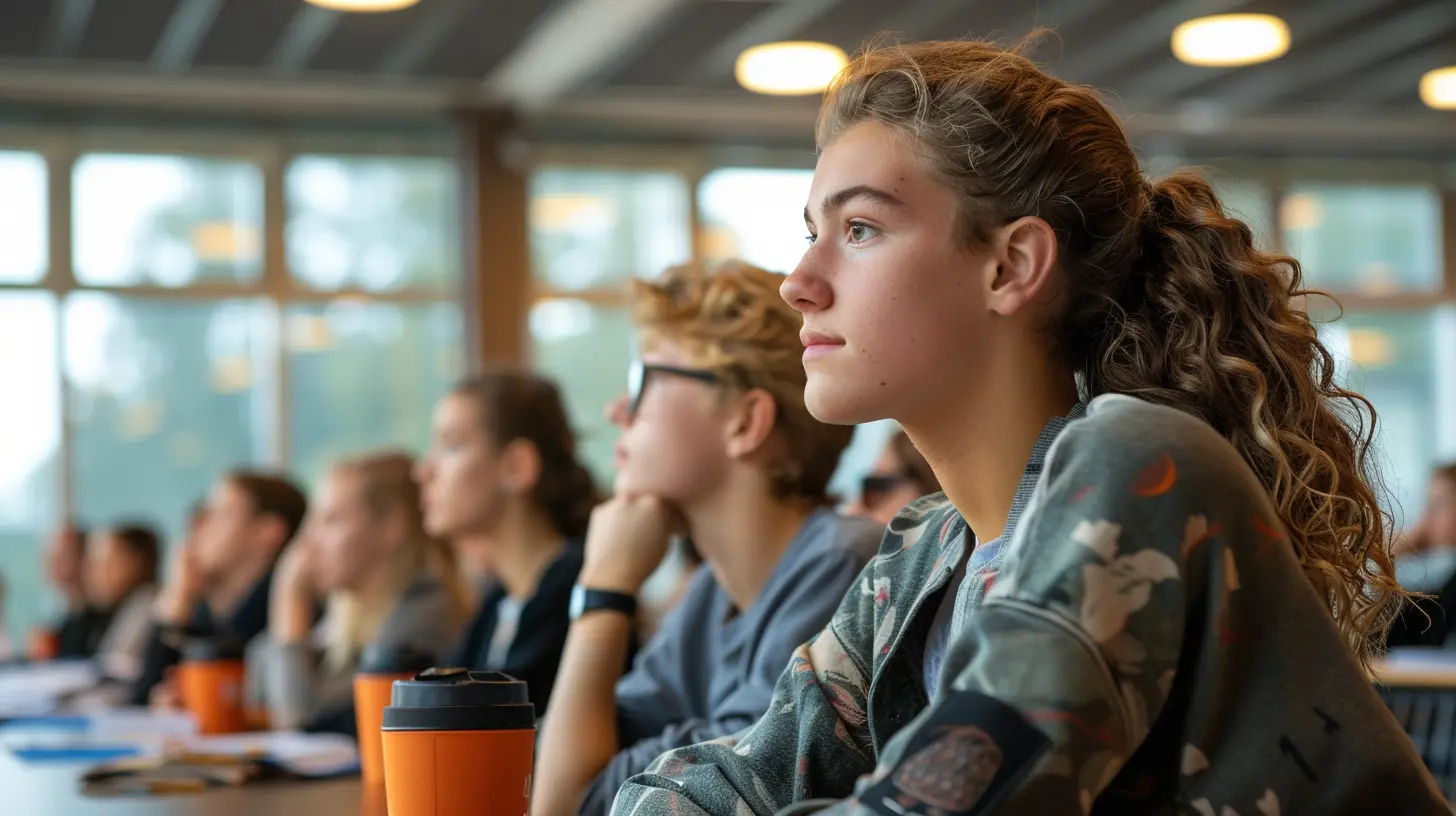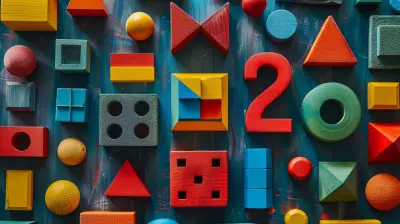The Role of MOOCs in Expanding Access to Higher Education
4 September 2025
Higher education has always been viewed as the golden ticket to a brighter future. But let’s be honest, it’s not always accessible to everyone. Whether it's the financial burden, geographical barriers, or other personal circumstances, traditional college or university education often feels like a distant dream for many. Enter MOOCs (Massive Open Online Courses) — a game changer in the education landscape.
MOOCs have revolutionized the way we think about education, breaking down barriers and offering learning opportunities to millions of people worldwide. But what exactly are MOOCs, and how are they expanding access to higher education? Let’s dive in and explore the world of MOOCs together.

What Are MOOCs?
If you’re not familiar with MOOCs, let me give you a quick rundown. MOOCs are online courses designed for a massive number of participants. They’re typically free or come at a very low cost, and they cover a wide range of subjects — from programming to philosophy, business to biology. The beauty of MOOCs? Anyone with an internet connection can enroll, no matter where they live or what their background is.The courses are often offered by top-tier universities or educational institutions and are usually self-paced, which makes them incredibly flexible. Whether you’re a working professional, a stay-at-home parent, or a student looking to expand your knowledge, MOOCs provide an open door to education that’s available to everyone.

The Evolution of MOOCs: From Niche to Mainstream
When MOOCs first started making waves around 2011, they were seen as a bit of an experiment. The idea of offering university-level courses to thousands (or even millions) of students all over the world seemed almost too good to be true. But the concept took off, and platforms like Coursera, edX, and Udacity began partnering with top universities like Harvard, MIT, and Stanford.Initially, the courses were pretty basic and didn’t offer much in terms of interaction or engagement. But over time, MOOCs have evolved. They now include video lectures, reading materials, quizzes, assignments, and even discussion forums. Some courses even offer certificates or degrees — and although these come at a cost, they are often a fraction of what traditional tuition fees would be.

Why MOOCs Matter in Expanding Access to Higher Education
So, why is this important? Well, the traditional model of higher education has its limitations. Not everyone can afford to attend a university, and even for those who can, there are other barriers like location, time constraints, and personal responsibilities. MOOCs help break down these barriers, offering a more inclusive and accessible form of education. Let's explore just how MOOCs are doing this.1. Affordability: Education Without the High Price Tag
Let’s face it, tuition fees can be astronomical. In many parts of the world, students leave university with mountains of debt that take years — or even decades — to pay off. MOOCs, on the other hand, offer a more affordable alternative. While many MOOCs are free, some do charge for certificates or more specialized courses. But even then, the cost is significantly lower than traditional higher education.For example, a traditional degree might set you back tens of thousands of dollars, but a similar MOOC-based program could cost a fraction of that, and in some cases, it’s even free. For people who can’t afford high tuition fees, this is a game-changing option.
2. Geographical Flexibility: Learning From Anywhere in the World
One of the biggest barriers to higher education is geography. Not everyone lives near a university, and not everyone can afford to relocate for their studies. MOOCs eliminate this problem. As long as you have an internet connection, you can access MOOCs from anywhere in the world.Whether you’re in a remote village in Africa or a bustling city in the United States, MOOCs provide the same learning opportunities to everyone. This democratization of education is one of the most powerful aspects of MOOCs. It levels the playing field, offering access to world-class education regardless of where you live.
3. Flexibility: Learn At Your Own Pace
Traditional education often comes with rigid schedules. You have to attend classes at specific times, submit assignments on strict deadlines, and follow a fixed curriculum. But life isn’t always that simple. Many people have jobs, families, or other responsibilities that make it difficult to commit to a full-time education program.MOOCs, however, are typically self-paced, which means you can learn when it suits you. Whether you prefer studying in the early morning or late at night, MOOCs give you the flexibility to fit education into your own schedule. This is especially beneficial for working professionals who want to upskill or change careers without quitting their jobs.
4. Diverse Offerings: From Introductory to Advanced Levels
One of the great things about MOOCs is the sheer diversity of subjects and difficulty levels they offer. Whether you’re just dipping your toes into a new subject or looking to deep-dive into advanced topics, there’s likely a MOOC for you.Are you curious about coding but have no prior background? There’s a beginner course for that. Want to study machine learning at an advanced level? There’s a MOOC for that too. This variety makes MOOCs appealing to a wide range of learners, from complete novices to seasoned professionals seeking to update their skills.
5. Recognition and Accreditation: MOOCs Are Gaining Respect
When MOOCs first emerged, one major criticism was the lack of recognition from employers and academic institutions. After all, would a certificate from an online course hold the same weight as a traditional degree? While this concern still exists to some extent, things are changing. More and more companies are recognizing the value of MOOCs, especially in fields like tech, where skills and knowledge often matter more than formal qualifications.Additionally, some MOOCs now offer micro-credentials, professional certificates, and even fully accredited degrees. For example, platforms like edX and Coursera offer full bachelor's and master's degree programs in partnership with universities. These programs are often more affordable and flexible than traditional degrees, making them an attractive option for many students.
6. Lifelong Learning: Education Isn’t Just for the Young
Higher education has traditionally been seen as something you do in your late teens or early twenties, but who says learning should stop there? With the world changing so rapidly, the need for continuous learning is more important than ever.MOOCs cater to learners of all ages, from recent high school graduates to retirees looking to explore new interests. This emphasis on lifelong learning is crucial in a world where industries are constantly evolving, and new skills are always in demand.
7. Bridging Gaps in Developing Countries
In many developing countries, access to quality education is still a significant challenge. Universities may be few and far between, and the cost of attending can be prohibitive for most families. MOOCs offer a way to bridge this gap.Students in developing countries can now access world-class education from top universities at little to no cost. This has the potential to uplift entire communities, as education is often the key to breaking the cycle of poverty. By providing access to knowledge and skills that were once out of reach, MOOCs are helping to create more opportunities for people in developing nations.

The Future of MOOCs: Challenges and Opportunities
While MOOCs have made incredible strides in expanding access to higher education, they’re not without their challenges. One major issue is the low completion rate. Many students sign up for MOOCs but never finish them. This could be due to a lack of motivation, time constraints, or the absence of one-on-one interaction that traditional classrooms offer.Another challenge is the digital divide. While MOOCs are accessible to anyone with an internet connection, not everyone has reliable access to the internet or the necessary technology, particularly in rural or underdeveloped regions.
Despite these challenges, the future of MOOCs is promising. As technology continues to improve and more people gain access to the internet, MOOCs have the potential to reach even more learners across the globe. Additionally, as employers and academic institutions continue to recognize the value of online education, we may see a shift toward more hybrid models that combine the best of both traditional and online learning.
Conclusion: A New Era of Education
MOOCs have opened up a world of possibilities for learners everywhere, offering affordable, flexible, and high-quality education to people who might otherwise be left out. Whether you’re looking to learn new skills, explore a new field, or earn an accredited degree, MOOCs provide a pathway to higher education that’s accessible to all.We’re living in a world where knowledge is no longer confined to the walls of a classroom. With MOOCs, education is just a click away, and that’s a truly transformative shift. So, what’s stopping you? Dive in, explore, and start learning!
all images in this post were generated using AI tools
Category:
Higher EducationAuthor:

Bethany Hudson
Discussion
rate this article
1 comments
Verity Mendez
Great article! MOOCs truly embody the spirit of accessible education, breaking down barriers for learners everywhere. It’s amazing to see how they’re reshaping the landscape of higher education, making knowledge available to anyone with a desire to learn. Excited for the future!
September 23, 2025 at 1:00 PM

Bethany Hudson
Thank you! I'm glad you found the article inspiring. MOOCs indeed hold great promise for democratizing education and empowering learners globally. Exciting times ahead!


